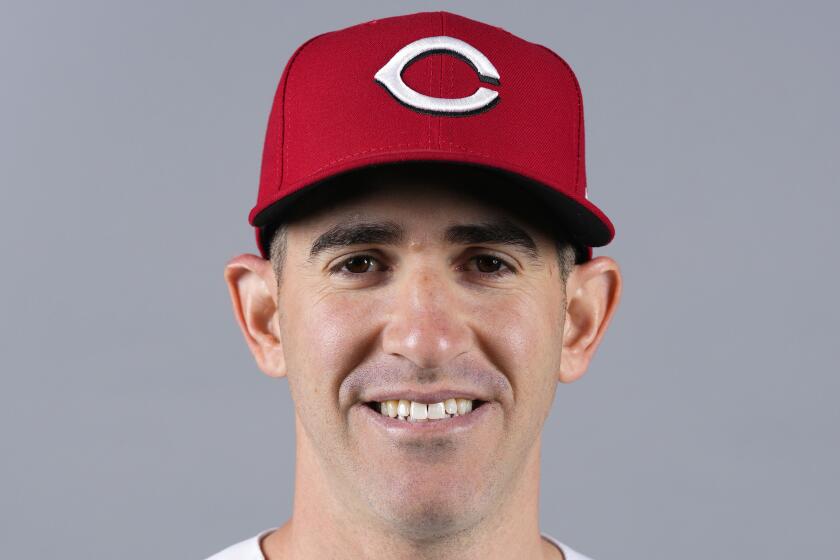Leagues resist set drug test policy
Commissioners and union leaders of the four major professional sports leagues sat side by side before a House subcommittee Wednesday, debating whether drug testing recommended in the Mitchell Report should be enforced through federal legislation or remain a collective bargaining issue.
But it wasn’t MLB Commissioner Bud Selig spurring the charge against congressional involvement, nor was it baseball union leader Donald Fehr.
Instead, NBA Commissioner David Stern took the lead, angrily speaking out of turn on several occasions to defend the rights of sports leagues to police themselves.
“Sports leagues have gotten it right in the past two or three years,” Stern said emphatically in response to subcommittee members’ continued references to the 2005 hearing it held in regard to steroids. “Enormous progress has been made. This is an area where federal legislation is not necessary.”
Rep. Marsha Blackburn (R-Tenn.) fired back: “If you all had gotten it right, we would not be here today.”
NFL Commissioner Roger Goodell was the only member of the first panel who acknowledged support for federal legislation requiring the implementation of testing guidelines recommended in the Mitchell Report. Selig told the committee he supported it at the time, but said afterward that he misunderstood the question.
The other six members -- including Stern, Fehr and NHL Commissioner Gary Bettman -- rejected that notion repeatedly.
“The recent record in baseball clearly shows that we are dealing with our problems,” Fehr said. “It should be noted that any legislation governing drug testing in private industry surely raises troubling Constitutional questions.”
By most accounts, Selig appears to be on the same page with Fehr, even though they have yet to finalize an agreement to implement all of the Mitchell Report’s recommendations. Fehr told the House Subcommittee on Commerce, Trade and Consumer Protection that he was unable to speak with players on those policies in the off-season and would do so in spring training before modifying the collective bargaining agreement.
“There are certainly strong policy reasons why an employer and a union should respect the sanctity of a collective bargaining agreement, including its term, and not engage in frequent midterm renegotiations,” Fehr said.
Several subcommittee members said baseball had to go beyond expected measures to regain the trust of the public.
“Baseball has put themselves in a position where they have to take the lead and put the bar much higher to correct the perception of cheating in baseball,” Rep. Lee Terry (R-Neb.) said.
Subcommittee Chairman Rep. Bobby Rush (D-Ill.) says he intends to introduce legislation soon to bring a uniform drug testing policy to all sports.
“In spite of the fact that they want to pronounce that they have it under control, I still think that it’s not fully under control,” Rush said. “And we have to do more.”
Included on the second panel was Alexander Waldrop, chief executive of the National Thoroughbred Racing Assn. He says he wants all states to adopt mandatory steroid testing for thoroughbred horses by the end of this year. So far, only a handful have done so.
“If they don’t step up, then it is incumbent upon the federal government to step up,” he told the subcommittee.
--
More to Read
Get our high school sports newsletter
Prep Rally is devoted to the SoCal high school sports experience, bringing you scores, stories and a behind-the-scenes look at what makes prep sports so popular.
You may occasionally receive promotional content from the Los Angeles Times.






